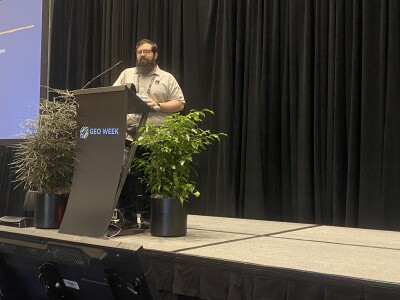Scott Grant of the Soluis Group recently made a great point: We don’t work enough to make our giant stores of data useful to anyone outside the immediate project team.
Though it’s one of a series of blog posts made in the days preceding a conference for sharing best practices on the use of new technologies in construction, I think the lesson applies equally to all verticals gathering a lot of data.
“Few would deny that the majority of the challenges faced by professionals and clients in the construction sector boil down to communication,” Grant writes. “The surge in the volume of information produced on any digitally driven project is extensive — and undoubtedly aids the process by providing a central, single source of truth at any given time. Yet, how much of our focus over recent years has been about distilling and simplifying the outputs of the increasing amounts of digital data we now routinely produce on every project?”
We’ve focused so much on getting all the data possible, in other words, that we often lose sight of making that data useful to people who aren’t 3D data experts.
These are the stakeholders, in other words. They may be members of the community where the proposed project is located, or even members of the executive board who have a great deal of experience making financial decisions. The point is that they have an interest in the project, and are experts in some subject that matters to the project’s overall success—they just aren’t experts in reading 3D data.
Grant argues that we need to cut down on the levels of complexity in our information, and “get better at representing our outcomes in a way that is relevant to each target audience” regardless of their education, backgrounds, cultural preferences, and tastes.
In the following posts—which are all worth reading—Grant discusses how virtual reality and augmented reality might solve that problem. These technologies, he says, offer a new way to engage with people in an engaging, easy to grasp way. They might be the future of communication.
I’d love to go more in depth, but I should leave some points to Grant. Have a look at his series, it’s good reading.






